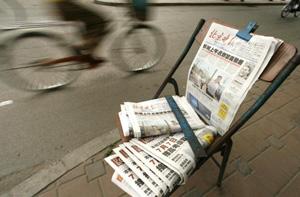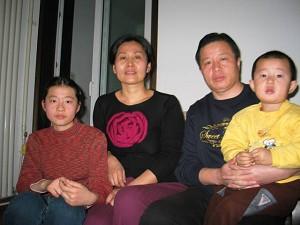The Central Publicity Department (also known as the Propaganda Department) of the Chinese Communist Party (CCP) has established a new policy to grade the print media in China. Some commentators consider this another wave to intensify the control of freedom of speech.
According to the South China Morning Post ’s report on Feb. 9, the CCP’s Publicity Department decided to use a new grading system on the print media in China. Each print media will have 12 points to start with. If the authorities consider that the content of a media is against the order or ideology of the CCP central government, the Publicity Department and the General Administration of Press and Publication (GAPP) will decide whether to and how many points to take off from the media. The number of points that can be removed are 3, 6, 9, or 12, and the penalties include internal warnings, removal of the responsible personnel, and stopping the press from printing.
Analysts consider the grading system a new way for the authorities to intensify control over freedom of speech because the inspecting agents are also from the central government and the details of the new regulation are still unclear.
This RFA reporter called the China Youth Daily , an official newspaper in Beijing, on Feb. 13 and asked about the new regulation. The newspaper said its report will conform to the regulation from the Publicity Department, “We definitely will work under the general rules set by the Publicity Department. So far, we are not clear about the details of the new regulations and what we can do. What we have now is the internal administrative regulations.”
Li Xinde, the administrator of a mainland Web site named Public Opinion Monitoring, considered the new rule was about the Publicity Department’s desire to please central leaders before the 17th National Party’s Congress. “Reporters who work in the CCP news agencies often receive internal notices of what can’t be reported. The 17th Party Congress is approaching and the Publicity Department will have something to show the central leaders what they have been working on,” said Li.
Since Jan. 1, 2007, the CCP authorities has removed a lot of restrictions for the foreign media on an unusually large scale. The foreign media can interview any individual as long as the individual and his organization agree. But one and half month later, the CCP put more regulations on the local media.
Huang Qi, founder of June 4 Tianwang.com, a forum that posts news on human rights and media’s freedom in China, said, “The foreign media and national media both have limited freedom over what to report. The government even controls the depth and breadth of the news report of Chinese media. If the CCP doesn’t put restrictions on the media, then freedom of speech will put its political power in danger. However, at the same time, the CCP wants to keep its promise to the international media, for this reason it has to intensify its control over the Chinese media.”



Friends Read Free